-
 Bitcoin
Bitcoin $115200
1.46% -
 Ethereum
Ethereum $3672
2.95% -
 XRP
XRP $3.004
1.51% -
 Tether USDt
Tether USDt $1.000
0.04% -
 BNB
BNB $772.6
3.15% -
 Solana
Solana $168.2
3.14% -
 USDC
USDC $0.9998
-0.01% -
 TRON
TRON $0.3365
1.44% -
 Dogecoin
Dogecoin $0.2053
3.66% -
 Cardano
Cardano $0.7414
2.80% -
 Hyperliquid
Hyperliquid $38.30
0.43% -
 Stellar
Stellar $0.3983
0.73% -
 Sui
Sui $3.496
3.19% -
 Bitcoin Cash
Bitcoin Cash $571.4
4.49% -
 Chainlink
Chainlink $16.75
2.91% -
 Hedera
Hedera $0.2440
2.21% -
 Ethena USDe
Ethena USDe $1.001
0.03% -
 Avalanche
Avalanche $22.18
2.14% -
 Litecoin
Litecoin $120.6
0.40% -
 UNUS SED LEO
UNUS SED LEO $8.991
0.05% -
 Toncoin
Toncoin $3.229
-0.62% -
 Shiba Inu
Shiba Inu $0.00001234
3.28% -
 Uniswap
Uniswap $9.757
3.45% -
 Polkadot
Polkadot $3.666
2.22% -
 Dai
Dai $1.000
0.01% -
 Monero
Monero $282.3
-4.49% -
 Bitget Token
Bitget Token $4.360
1.80% -
 Cronos
Cronos $0.1437
6.19% -
 Pepe
Pepe $0.00001050
4.21% -
 Aave
Aave $263.0
4.02%
What is Ponzi Coin?
Ponzi coins, a deceptive scheme in the cryptocurrency realm, promise unrealistic returns while lacking transparency and relying on a constant influx of new investors to sustain their facade of profitability.
Feb 16, 2025 at 07:48 pm
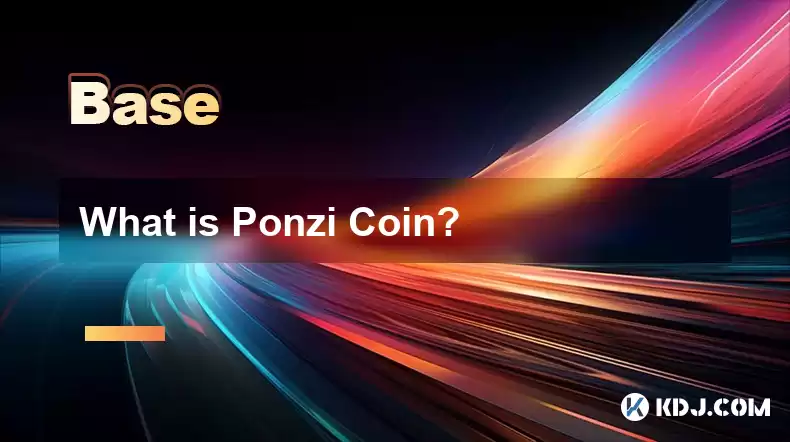
Understanding Ponzi Coins: Unveiling Deception in the Cryptocurrency Realm
Key Points:
- Defining Ponzi schemes and their evolution in the cryptocurrency market
- Identifying the key characteristics of Ponzi coins and their tactics
- Exploring the risks and consequences of investing in Ponzi coins
- Strategies for protecting oneself from falling prey to Ponzi scams
What is a Ponzi Scheme?
A Ponzi scheme, named after Charles Ponzi, is a fraudulent investment operation that relies on a constant flow of new investors to pay returns to existing investors. The scheme operates on the premise of offering high returns with minimal risk, enticing investors to participate. However, these returns are not generated through legitimate business activities but rather from the contributions of new investors.
Ponzi Coins and the Cryptocurrency Ecosystem
The advent of cryptocurrency has provided a new breeding ground for Ponzi schemes, with the anonymity and decentralized nature of the technology facilitating fraudulent activities. Ponzi coins, also known as exit scams, leverage the hype surrounding cryptocurrency to attract unsuspecting investors.
Identifying Ponzi Coins
Certain characteristics distinguish Ponzi coins from legitimate investment opportunities:
- Unusually High Returns: Ponzi coins often promise extraordinary returns, far exceeding industry benchmarks. These returns are unsustainable and serve as a lure to attract investors.
- Lack of Transparency: Ponzi coins frequently operate with minimal information about their underlying operations or investment strategies. They rely on vague or misleading statements to veil their fraudulent nature.
- Aggressive Marketing: Ponzi coins employ aggressive marketing tactics, leveraging social media platforms and online advertisements to build a sense of urgency and encourage quick decision-making by investors.
- Unregistered and Unregulated: Ponzi coins typically operate without regulatory oversight or registration with reputable exchanges. This lack of accountability allows for unscrupulous actors to evade legal repercussions.
- Focus on Recruitment: Ponzi coins incentivize participants to recruit new investors through referral bonuses and rewards. This recruitment model sustains the flow of funds necessary to maintain the appearance of profitability.
Risks of Investing in Ponzi Coins
Investing in Ponzi coins poses significant risks:
- Loss of Capital: Investors are at risk of losing their entire investment as Ponzi schemes inherently lack a real economic foundation.
- Legal Liability: Participating in unregistered or unregulated investment schemes may expose investors to legal penalties or liabilities.
- Reputational Damage: Association with Ponzi scams can tarnish an investor's reputation and hinder future investment opportunities.
Protecting Yourself from Ponzi Scams
To safeguard against Ponzi schemes:
- Research Thoroughly: Conduct extensive research before investing in any cryptocurrency. Scrutinize the team, technology, and financial performance of the project.
- Be Wary of Outrageous Promises: Unusually high returns and guarantees should raise red flags. Legitimate investments typically involve calculated risks and potential for loss.
- Seek Independent Verification: Consult trusted sources and seek professional advice before making investment decisions. Reviews and ratings from reputable platforms can provide valuable insights.
- Exercise Due Diligence: Verify the identity and authenticity of those behind the investment opportunity. Consider their backgrounds, experience, and any regulatory oversight.
Addressing Common Questions and Concerns
FAQs:
- How does a Ponzi scheme operate in the cryptocurrency market?
Ponzi schemes use new investor funds to pay returns to existing investors, creating the illusion of profitability. As long as new funds continue to flow in, the scheme can remain active. When the inflow of new investments slows down or ceases, the scheme inevitably collapses.
- What are some examples of Ponzi coins that have operated within the crypto space?
Numerous Ponzi coin schemes have been identified within the cryptocurrency market. Some notable examples include Bitconnect, MMM Global, and OneCoin. These schemes generated billions of dollars from unsuspecting investors before eventually collapsing, leaving many victims with substantial financial losses.
- How can I identify and avoid Ponzi coins?
By following prudent investment practices, you can minimize the risk of falling prey to Ponzi scams. Conduct thorough research, seek independent verification, and exercise caution when presented with unusually high returns or aggressive marketing schemes.
Disclaimer:info@kdj.com
The information provided is not trading advice. kdj.com does not assume any responsibility for any investments made based on the information provided in this article. Cryptocurrencies are highly volatile and it is highly recommended that you invest with caution after thorough research!
If you believe that the content used on this website infringes your copyright, please contact us immediately (info@kdj.com) and we will delete it promptly.
- OZAK AI: Is This AI Product Poised for ChatGPT-Level Returns?
- 2025-08-07 03:30:13
- SEC, Liquid Staking, and Crypto: A New Dawn?
- 2025-08-07 03:30:13
- Bitcoin, Ozak AI, and Crypto Veterans: A New York Minute on What's Hot
- 2025-08-07 02:31:03
- KakaoBank Eyes Stablecoin Market: A New Era for Digital Assets in South Korea?
- 2025-08-07 02:31:03
- Ethereum's Scaling Saga: Gas Limits, Leadership, and the Road to 100M
- 2025-08-07 02:50:40
- Bitcoin Income Evolution: Decoding YBTC and the Future of Crypto Yield
- 2025-08-07 02:50:40
Related knowledge
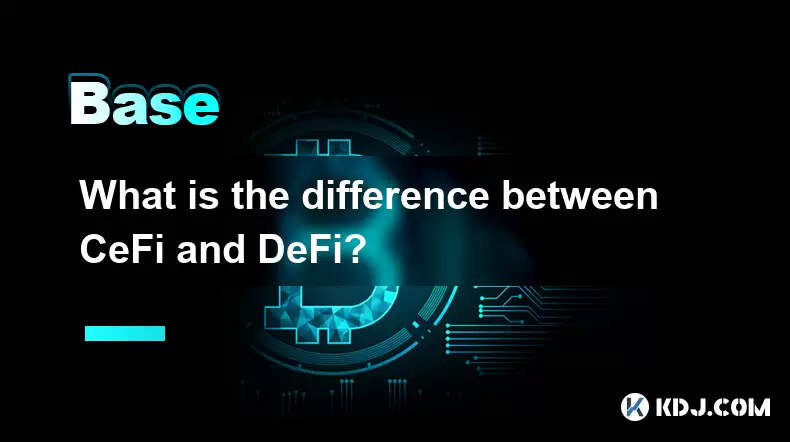
What is the difference between CeFi and DeFi?
Jul 22,2025 at 12:28am
Understanding CeFi and DeFiIn the world of cryptocurrency, CeFi (Centralized Finance) and DeFi (Decentralized Finance) represent two distinct financia...

How to qualify for potential crypto airdrops?
Jul 23,2025 at 06:49am
Understanding What Crypto Airdrops AreCrypto airdrops refer to the distribution of free tokens or coins to a large number of wallet addresses, often u...
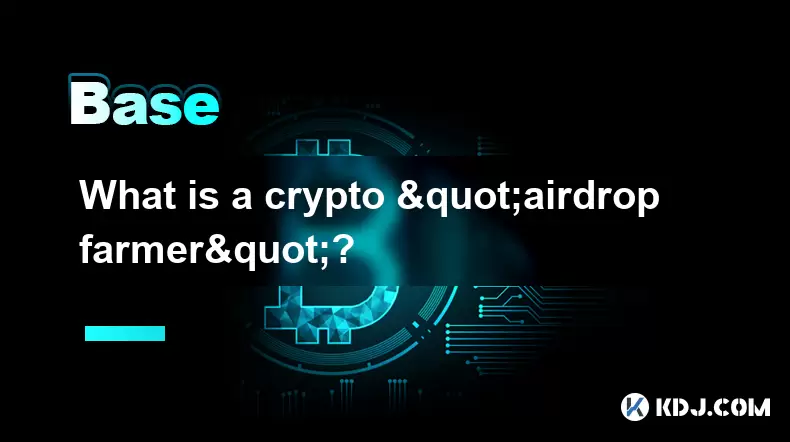
What is a crypto "airdrop farmer"?
Jul 24,2025 at 10:22pm
Understanding the Role of a Crypto 'Airdrop Farmer'A crypto 'airdrop farmer' refers to an individual who actively participates in cryptocurrency airdr...
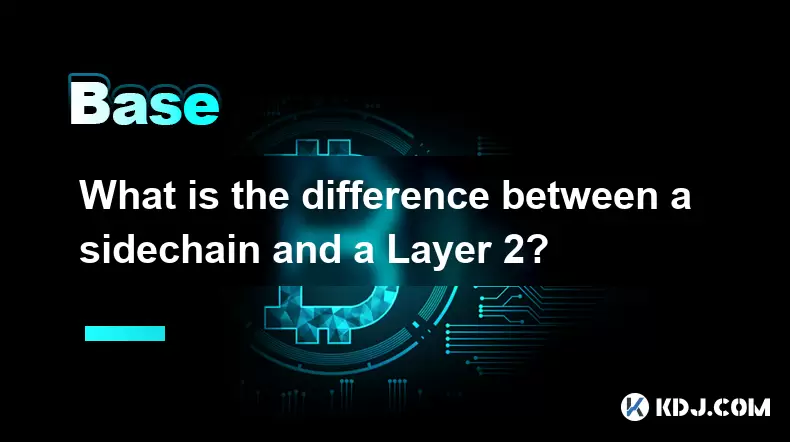
What is the difference between a sidechain and a Layer 2?
Jul 20,2025 at 11:35pm
Understanding the Concept of SidechainsA sidechain is a separate blockchain that runs parallel to the main blockchain, typically the mainnet of a cryp...
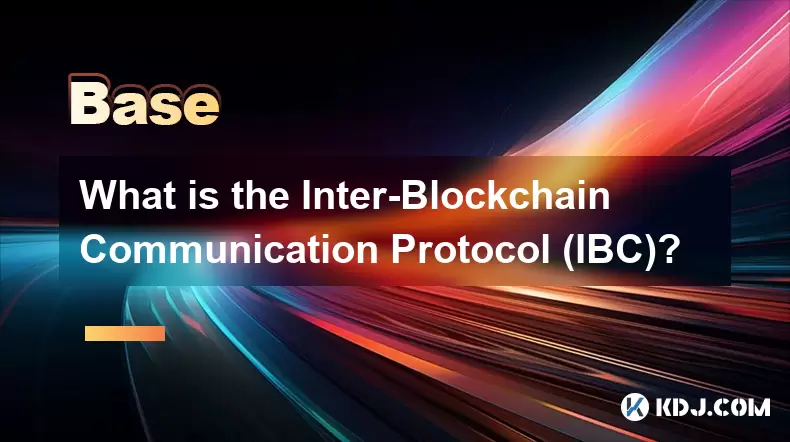
What is the Inter-Blockchain Communication Protocol (IBC)?
Jul 19,2025 at 10:43am
Understanding the Inter-Blockchain Communication Protocol (IBC)The Inter-Blockchain Communication Protocol (IBC) is a cross-chain communication protoc...
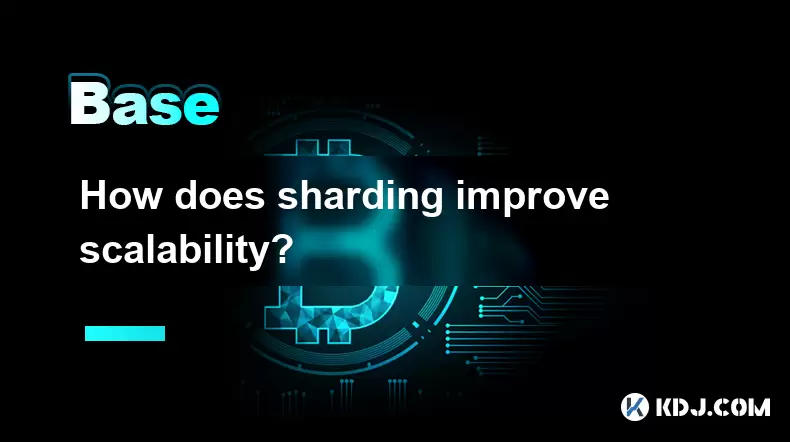
How does sharding improve scalability?
Jul 20,2025 at 01:21am
Understanding Sharding in BlockchainSharding is a database partitioning technique that is increasingly being adopted in blockchain technology to enhan...

What is the difference between CeFi and DeFi?
Jul 22,2025 at 12:28am
Understanding CeFi and DeFiIn the world of cryptocurrency, CeFi (Centralized Finance) and DeFi (Decentralized Finance) represent two distinct financia...

How to qualify for potential crypto airdrops?
Jul 23,2025 at 06:49am
Understanding What Crypto Airdrops AreCrypto airdrops refer to the distribution of free tokens or coins to a large number of wallet addresses, often u...

What is a crypto "airdrop farmer"?
Jul 24,2025 at 10:22pm
Understanding the Role of a Crypto 'Airdrop Farmer'A crypto 'airdrop farmer' refers to an individual who actively participates in cryptocurrency airdr...

What is the difference between a sidechain and a Layer 2?
Jul 20,2025 at 11:35pm
Understanding the Concept of SidechainsA sidechain is a separate blockchain that runs parallel to the main blockchain, typically the mainnet of a cryp...

What is the Inter-Blockchain Communication Protocol (IBC)?
Jul 19,2025 at 10:43am
Understanding the Inter-Blockchain Communication Protocol (IBC)The Inter-Blockchain Communication Protocol (IBC) is a cross-chain communication protoc...

How does sharding improve scalability?
Jul 20,2025 at 01:21am
Understanding Sharding in BlockchainSharding is a database partitioning technique that is increasingly being adopted in blockchain technology to enhan...
See all articles

























































































